Diego Rivera et Frida Kahlo artistes révolutionnaires
Michael Löwy
 Diego Rivera (1886-1957) et Frida Kahlo (1907-1954) étaient des artistes révolutionnaires, c'est-à-dire des individus profondément engagés dans les combats politiques de leur époque, un engagement qui se traduit directement dans - une grande partie de - l'œuvre murale du premier, mais beaucoup moins dans ses peintures de chevalet. L'œuvre de Frida Kahlo est quant à elle authentiquement subversive, mais cela ne s'exprime pas, sauf pour la toute dernière période de sa vie, en des termes politiques traditionnels. Elle ne contient pas moins une sorte de protestation féministe contre la condition des femmes dans les sociétés patriarcales modernes. Ses tableaux sont personnels, autobiographiques, intimes, mais si l'on considère, l'instar du mot d'ordre fémi-niste, que «le personnel est politique», sans doute l'art de Kahlo traduit-il le désir d'affirmation des femmes : elle rompt de manière provocatrice avec l'imagerie traditionnelle de la féminité, en représentant l'accouchement, l'avortement, le fœtus, et d'une façon générale l'expérience féminine de la souffrance corporelle. Aucun des deux n'a participé à la Révolution mexicaine : Frida, née en 1907, était trop jeune, et Diego était alors en Europe. Elle ne constitue pas moins l'arrière-plan de leur engagement. On présente parfois l'histoire de cette révolution comme une succession de meurtres et d'assassinats : un soulèvement populaire renverse le dictateur Porftrio Diaz en 1911; le démo-crate Francisco Madero assume la prési-dence, mais il est assassiné par le général Victoriano Huerta en 1913. Contre la dictature de ce dernier se soulèvent Emi- liano Zapata dans le Sud et Pancho Villa dans le Nord, ainsi que l'armée constitu-tionnaliste de Venustiano Carranza et d'Âlvaro Obregôn. Ils renversent Huerta, mais bientôt la guerre civile éclate entre Zapata et Villa d'une part, Carranza et Obregôn de l'autre. Carranza fait assassiner Zapata en 1919, puis est tué par Obre- gôn en 1920. Retiré dans sa ferme, Villa est assassiné en 1923 par les hommes d'Obregôn, qui est tué à son tour en 1928, par un catholique fanatique. Cette chronique sanglante n'est pas fausse, mais il manque l'essentiel : première révolution sociale du xxe siècle, la Révolution mexicaine a profondément bouleversé les structures économique, sociale, politique et culturelle du pays. Cette «révolution interrompue» - selon l'expression de l'historien Adolfo Gilly - atteint son apogée quand les forces les plus radicales, celles de Zapata et de Villa, occupent pour quelques mois, en 1914-1915, la capitale du pays. Cette aile paysanne et populaire de la Révolution sera vaincue, mais ses adversaires devront promulguer en 1917 une Constitution qui compte parmi les plus avancées de l'époque : réforme agraire, lois de protection sociale, droit de grève, contrôle du commerce extérieur, séparation de l'Église et de l'État. À partir de ce moment, la Révolution «s'institutionnalise», et connaîtra une sorte de prolongement sous la présidence de Lazaro Cardenas (1934-1940), qui nationalisera le pétrole, approfondira la réforme agraire et établira l'éducation socialiste.
Diego Rivera (1886-1957) et Frida Kahlo (1907-1954) étaient des artistes révolutionnaires, c'est-à-dire des individus profondément engagés dans les combats politiques de leur époque, un engagement qui se traduit directement dans - une grande partie de - l'œuvre murale du premier, mais beaucoup moins dans ses peintures de chevalet. L'œuvre de Frida Kahlo est quant à elle authentiquement subversive, mais cela ne s'exprime pas, sauf pour la toute dernière période de sa vie, en des termes politiques traditionnels. Elle ne contient pas moins une sorte de protestation féministe contre la condition des femmes dans les sociétés patriarcales modernes. Ses tableaux sont personnels, autobiographiques, intimes, mais si l'on considère, l'instar du mot d'ordre fémi-niste, que «le personnel est politique», sans doute l'art de Kahlo traduit-il le désir d'affirmation des femmes : elle rompt de manière provocatrice avec l'imagerie traditionnelle de la féminité, en représentant l'accouchement, l'avortement, le fœtus, et d'une façon générale l'expérience féminine de la souffrance corporelle. Aucun des deux n'a participé à la Révolution mexicaine : Frida, née en 1907, était trop jeune, et Diego était alors en Europe. Elle ne constitue pas moins l'arrière-plan de leur engagement. On présente parfois l'histoire de cette révolution comme une succession de meurtres et d'assassinats : un soulèvement populaire renverse le dictateur Porftrio Diaz en 1911; le démo-crate Francisco Madero assume la prési-dence, mais il est assassiné par le général Victoriano Huerta en 1913. Contre la dictature de ce dernier se soulèvent Emi- liano Zapata dans le Sud et Pancho Villa dans le Nord, ainsi que l'armée constitu-tionnaliste de Venustiano Carranza et d'Âlvaro Obregôn. Ils renversent Huerta, mais bientôt la guerre civile éclate entre Zapata et Villa d'une part, Carranza et Obregôn de l'autre. Carranza fait assassiner Zapata en 1919, puis est tué par Obre- gôn en 1920. Retiré dans sa ferme, Villa est assassiné en 1923 par les hommes d'Obregôn, qui est tué à son tour en 1928, par un catholique fanatique. Cette chronique sanglante n'est pas fausse, mais il manque l'essentiel : première révolution sociale du xxe siècle, la Révolution mexicaine a profondément bouleversé les structures économique, sociale, politique et culturelle du pays. Cette «révolution interrompue» - selon l'expression de l'historien Adolfo Gilly - atteint son apogée quand les forces les plus radicales, celles de Zapata et de Villa, occupent pour quelques mois, en 1914-1915, la capitale du pays. Cette aile paysanne et populaire de la Révolution sera vaincue, mais ses adversaires devront promulguer en 1917 une Constitution qui compte parmi les plus avancées de l'époque : réforme agraire, lois de protection sociale, droit de grève, contrôle du commerce extérieur, séparation de l'Église et de l'État. À partir de ce moment, la Révolution «s'institutionnalise», et connaîtra une sorte de prolongement sous la présidence de Lazaro Cardenas (1934-1940), qui nationalisera le pétrole, approfondira la réforme agraire et établira l'éducation socialiste.


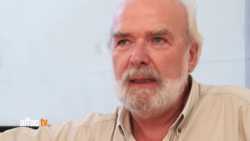 The extremely tolerant approach to the manipulation of interest rates by the governments of the main industrialised countries shows the extent to which the ’Too Big to Jail’ principle is applied. In 2010 the media revealed that a group of eighteen banks had been manipulating the London Interbank Offered Rate (LIBOR) from 2005 to 2010. LIBOR is a benchmark rate used for a market of $350 trillion, in assets and financial derivatives, which means it is the second most important benchmark rate in the world after the dollar exchange rate. The rate is based on information provided by eighteen banks about their funding costs in interbank markets. In 2012 evidence was provided of collusion among big banks such as UBS, Barclays, Rabobank, or Royal Bank of Scotland in order to manipulate LIBOR in their own interests.
The extremely tolerant approach to the manipulation of interest rates by the governments of the main industrialised countries shows the extent to which the ’Too Big to Jail’ principle is applied. In 2010 the media revealed that a group of eighteen banks had been manipulating the London Interbank Offered Rate (LIBOR) from 2005 to 2010. LIBOR is a benchmark rate used for a market of $350 trillion, in assets and financial derivatives, which means it is the second most important benchmark rate in the world after the dollar exchange rate. The rate is based on information provided by eighteen banks about their funding costs in interbank markets. In 2012 evidence was provided of collusion among big banks such as UBS, Barclays, Rabobank, or Royal Bank of Scotland in order to manipulate LIBOR in their own interests. Les 7-8 juin, une conférence des forces anti-guerre de la gauche de Russie, d'Ukraine et du Belarus a eu lieu près de Minsk. Son but était de renforcer l'unité des internationalistes des trois pays dans la lutte contre la violence endémique, contre l'hystérie nationaliste et la répression des deux côtés de la frontière russo-ukrainienne. Ci-dessous le texte de la déclaration de la conférence. Cet appel a été traduit par David Mandel. Nous invitons d'autres personnes à le signer.
Les 7-8 juin, une conférence des forces anti-guerre de la gauche de Russie, d'Ukraine et du Belarus a eu lieu près de Minsk. Son but était de renforcer l'unité des internationalistes des trois pays dans la lutte contre la violence endémique, contre l'hystérie nationaliste et la répression des deux côtés de la frontière russo-ukrainienne. Ci-dessous le texte de la déclaration de la conférence. Cet appel a été traduit par David Mandel. Nous invitons d'autres personnes à le signer.  Mai come oggi il proletariato ha sentito la necessità della difesa; ma la situazione in Italia è tale ormai, per cui nessuna difesa è possibile senza addivenire alla immediata costituzione di un organo solido, perfetto, con a disposizione mezzi tecnici ed a carattere «militare».
Mai come oggi il proletariato ha sentito la necessità della difesa; ma la situazione in Italia è tale ormai, per cui nessuna difesa è possibile senza addivenire alla immediata costituzione di un organo solido, perfetto, con a disposizione mezzi tecnici ed a carattere «militare».  Il 5 gennaio 1937, sulle alture spagnole de El Matoral, una pallottola vigliacca colpiva alle spalle e uccideva Guido Picelli, vicecomandante del Battaglione Garibaldi.
Il 5 gennaio 1937, sulle alture spagnole de El Matoral, una pallottola vigliacca colpiva alle spalle e uccideva Guido Picelli, vicecomandante del Battaglione Garibaldi.  Les grandes compétitions sportives planétaires coûtent de plus en plus cher. Surtout, le Comité international olympique et la FIFA, qui commercialisent ces produits phares du divertissement mondial, sont devenus de véritables holdings sans aucun contrôle. Résultat : présomptions de corruption, optimisation fiscale, violations du droit du travail, expulsions des populations pauvres pour laisser place à des infrastructures souvent inutiles et remise en cause de la démocratie accompagnent ces évènements. Pour le plus grand profit de ces holdings et de leurs sponsors, et sous les acclamations des stades.
Les grandes compétitions sportives planétaires coûtent de plus en plus cher. Surtout, le Comité international olympique et la FIFA, qui commercialisent ces produits phares du divertissement mondial, sont devenus de véritables holdings sans aucun contrôle. Résultat : présomptions de corruption, optimisation fiscale, violations du droit du travail, expulsions des populations pauvres pour laisser place à des infrastructures souvent inutiles et remise en cause de la démocratie accompagnent ces évènements. Pour le plus grand profit de ces holdings et de leurs sponsors, et sous les acclamations des stades.  The British bank HSBC (Hong Kong and Shanghai Banking Corporation) employs 260,000 people, has offices in 75 countries, and 54 million customers. |1| From its earliest days, it has been involved in the international narcotics trade. It was founded in the wake of the British victories in the Opium Wars (1839-1842 and 1856-1860) against China. These two wars were very important to the strengthening of the British Empire and the century and a half waning of China. Through the Opium Wars, the British Empire forced China to accept opium importations coming from British India. China tried to oppose this commerce, but British arms, backed by Washington, proved stronger. London established a colony in Hong Kong in 1865, where HSBC was created by a Scottish merchant specializing in the opium trade— the basis of 70% of Hong Kong trade with the Indies.
The British bank HSBC (Hong Kong and Shanghai Banking Corporation) employs 260,000 people, has offices in 75 countries, and 54 million customers. |1| From its earliest days, it has been involved in the international narcotics trade. It was founded in the wake of the British victories in the Opium Wars (1839-1842 and 1856-1860) against China. These two wars were very important to the strengthening of the British Empire and the century and a half waning of China. Through the Opium Wars, the British Empire forced China to accept opium importations coming from British India. China tried to oppose this commerce, but British arms, backed by Washington, proved stronger. London established a colony in Hong Kong in 1865, where HSBC was created by a Scottish merchant specializing in the opium trade— the basis of 70% of Hong Kong trade with the Indies. 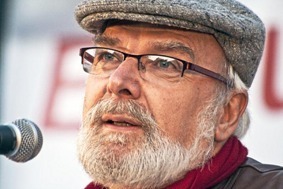 The British bank HSBC, which employs 260, 000 people worldwide, is present in 75 countries, and claims to have 54 million customers [
The British bank HSBC, which employs 260, 000 people worldwide, is present in 75 countries, and claims to have 54 million customers [ In a comment on this [John Riddell's] website [1], Jara Handala raised a number of questions regarding the evolution of the Comintern's position on fascism, a topic touched on in my article Weighing the Legacy of Lenin's Comintern [2]. I do not know of any full treatment of this topic in English. I am therefore providing the summary account prepared for the introduction to my book on the Comintern's Fourth Congress, Toward the United Front [3] (Haymarket Books). This draft (Copyright © 2011, 2014 John Riddell) differs slightly from the final text in the book.
In a comment on this [John Riddell's] website [1], Jara Handala raised a number of questions regarding the evolution of the Comintern's position on fascism, a topic touched on in my article Weighing the Legacy of Lenin's Comintern [2]. I do not know of any full treatment of this topic in English. I am therefore providing the summary account prepared for the introduction to my book on the Comintern's Fourth Congress, Toward the United Front [3] (Haymarket Books). This draft (Copyright © 2011, 2014 John Riddell) differs slightly from the final text in the book.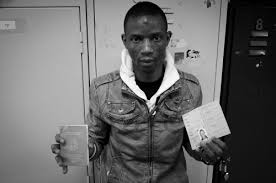 Toutefois, si contre toute attente, une décision négative, ou du moins ne nous donnant pas satisfaction (telle une « protection subsidiaire », ne lui offrant qu’un statut et un immunité au rabais et provisoire), devait être prise par le CGRA, il faudrait alors relancer la mobilisation politique et citoyenne pour appuyer les recours indispensables. Et d’abord sur le plan financier, le nerf de cette « guerre d’usure » : jusqu’à présent, son avocat a généreusement accepté de travailler gratis, même pas "pro deo", gardant cette possibilité pour ces éventuels recours, autrement coûteux que la phase actuelle de la procédure.
Toutefois, si contre toute attente, une décision négative, ou du moins ne nous donnant pas satisfaction (telle une « protection subsidiaire », ne lui offrant qu’un statut et un immunité au rabais et provisoire), devait être prise par le CGRA, il faudrait alors relancer la mobilisation politique et citoyenne pour appuyer les recours indispensables. Et d’abord sur le plan financier, le nerf de cette « guerre d’usure » : jusqu’à présent, son avocat a généreusement accepté de travailler gratis, même pas "pro deo", gardant cette possibilité pour ces éventuels recours, autrement coûteux que la phase actuelle de la procédure.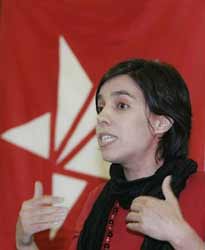 The regime is collapsing, it is dying and in its last-ditch struggle to survive, the king has abdicated. Never has the regime resulting from the Transition
The regime is collapsing, it is dying and in its last-ditch struggle to survive, the king has abdicated. Never has the regime resulting from the Transition  Se va el Rey Juan Carlos. El régimen del 78, el régimen de la monarquía corrupta trata de reciclarse, de colocar en la cabeza del Estado a un rey más joven, con menos lastre, pero que representa lo mismo: al régimen de la corrupción, de la miseria, de la falta de democracia.
Se va el Rey Juan Carlos. El régimen del 78, el régimen de la monarquía corrupta trata de reciclarse, de colocar en la cabeza del Estado a un rey más joven, con menos lastre, pero que representa lo mismo: al régimen de la corrupción, de la miseria, de la falta de democracia.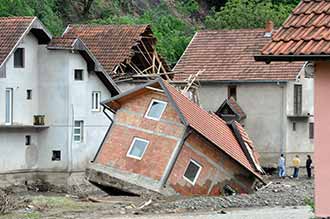 Since May 17, floods in the Balkans have taken a heavy toll with 17 deaths in Serbia, 27 in Bosnia and 2 in Croatia. Add to this disaster tens of thousands of displaced people and of homes without electricity, and enormous material damage. According to the political authorities, flooding on this scale has not been seen in the region for over a century. 40% of Bosnian territory has been devastated by floods. Damage is estimated at around 1.3 billion euros, the equivalent of 10% of the country’s GDP.
Since May 17, floods in the Balkans have taken a heavy toll with 17 deaths in Serbia, 27 in Bosnia and 2 in Croatia. Add to this disaster tens of thousands of displaced people and of homes without electricity, and enormous material damage. According to the political authorities, flooding on this scale has not been seen in the region for over a century. 40% of Bosnian territory has been devastated by floods. Damage is estimated at around 1.3 billion euros, the equivalent of 10% of the country’s GDP.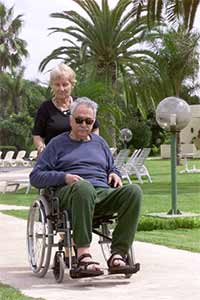 Christine Daure-Serfaty est décédée à Paris, mercredi matin 28 mai dans sa quatre-vingt-huitième année. C'est une grande dame qui s'en va, une Juste qui avait fait de la résistance une évidence, vitalité essentielle en tout lieu et en toute époque. Pour le peuple marocain, dont elle avait épousé le destin, elle restera comme l'une des héroïnes de son inlassable combat pour les droits humains.
Christine Daure-Serfaty est décédée à Paris, mercredi matin 28 mai dans sa quatre-vingt-huitième année. C'est une grande dame qui s'en va, une Juste qui avait fait de la résistance une évidence, vitalité essentielle en tout lieu et en toute époque. Pour le peuple marocain, dont elle avait épousé le destin, elle restera comme l'une des héroïnes de son inlassable combat pour les droits humains.  C'est une véritable secousse historique pour l'Europe et un énorme coup de tonnerre en France avec la victoire du Front national. Les résultats des élections européennes confirment la crise politique terrible qui frappe l'Europe. Il y a une onde de choc dont on ne peut encore mesurer tous les effets politiques. Bien sûr, il faut se garder d'une lecture française des résultats électoraux européens qui concernent 28 Etats : selon la situation politique de chaque pays, les rapports de forces peuvent varier, ici et là, mais de grandes tendances se dégagent néanmoins sur fond de crise et de dégradation de rapports de forces pour le mouvement ouvrier : abstention massive, poussée de l'extrême droite, recul de la droite traditionnelle, affaiblissement considérable de la social-démocratie, maintien de la gauche radicale avec une poussée de Syriza en Grèce et de Podemos en Espagne.
C'est une véritable secousse historique pour l'Europe et un énorme coup de tonnerre en France avec la victoire du Front national. Les résultats des élections européennes confirment la crise politique terrible qui frappe l'Europe. Il y a une onde de choc dont on ne peut encore mesurer tous les effets politiques. Bien sûr, il faut se garder d'une lecture française des résultats électoraux européens qui concernent 28 Etats : selon la situation politique de chaque pays, les rapports de forces peuvent varier, ici et là, mais de grandes tendances se dégagent néanmoins sur fond de crise et de dégradation de rapports de forces pour le mouvement ouvrier : abstention massive, poussée de l'extrême droite, recul de la droite traditionnelle, affaiblissement considérable de la social-démocratie, maintien de la gauche radicale avec une poussée de Syriza en Grèce et de Podemos en Espagne.